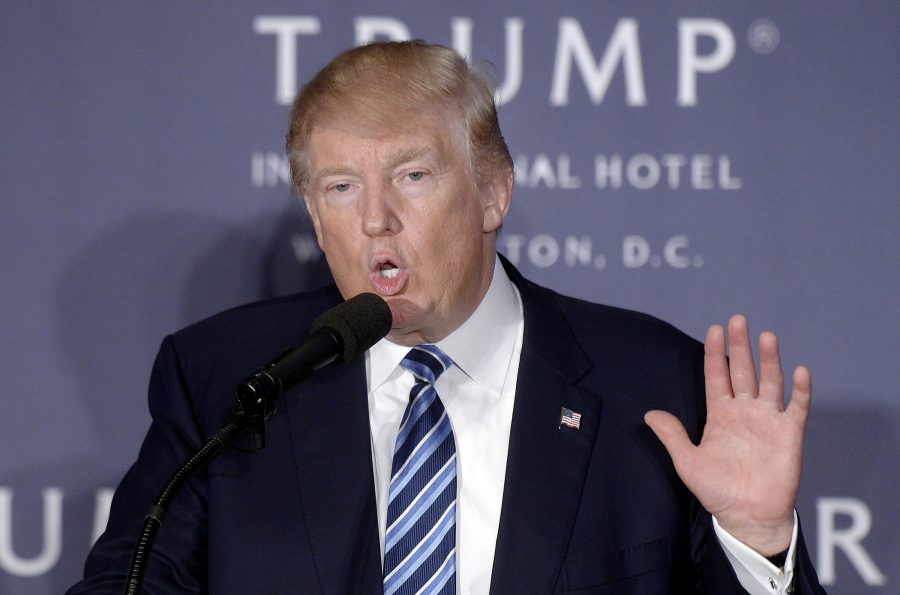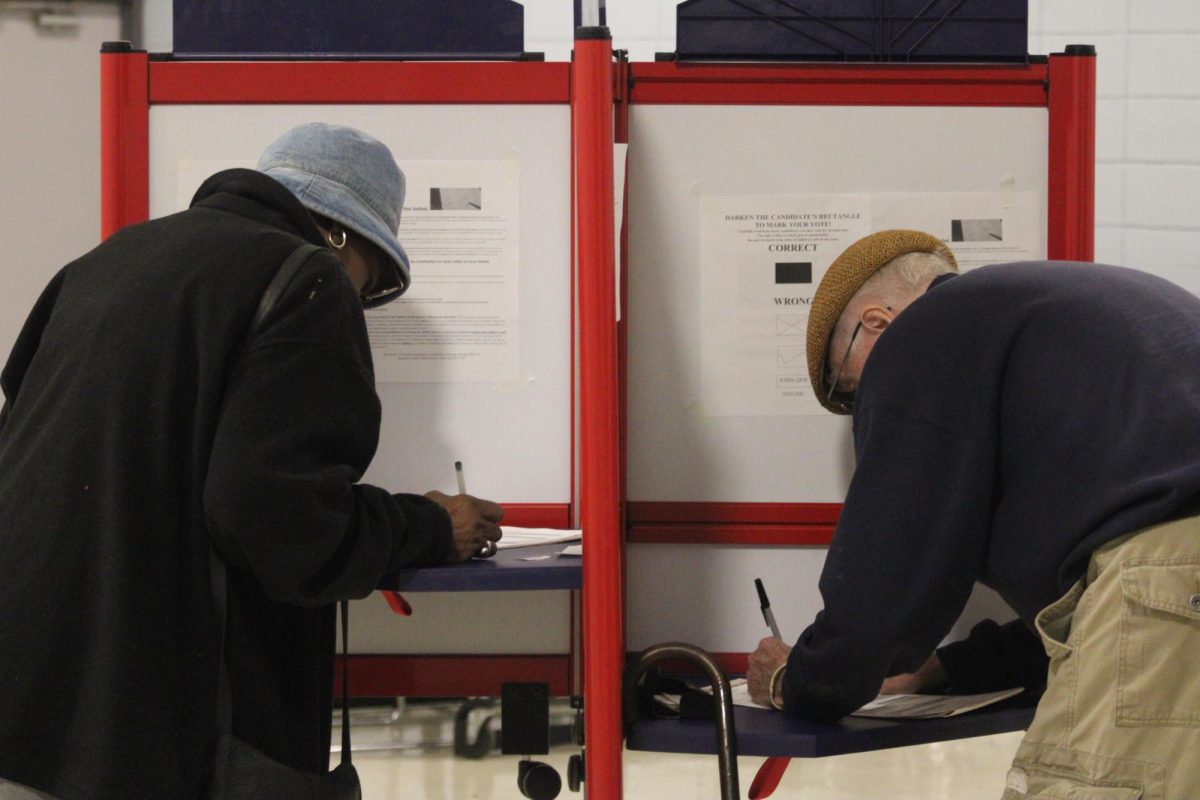‘Like I’m not wanted’: Students respond to Trump’s new travel ban
Donald Trump speaks on October 26, 2016, in Washington, D.C. (Olivier Douliery/Abaca Press/TNS)
October 5, 2017
President Donald Trump announced on Sept. 24 a new order to indefinitely ban almost all travel from seven countries: Iran, Somalia, Libya, Syria, Yemen, Chad and North Korea. For many students from those countries, the order sends a signal.
“Since I’m from Somalia and I’m Muslim too, Trump’s war against Muslims makes me feel like I’m not wanted in the country,” said Aweis Osman, a junior studying information technology. “The United States is my home and the things that Donald Trump is saying deeply hurt me.”
The policy replaces the previous ban — which restricted travel from from six Muslim-majority countries — and adds Chad and North Korea to the list while placing certain restrictions on visas from Venezuela.
Advertisement
When Trump announced Wednesday that the U.S. would also cut its number of refugee admittants by more than half, administration officials said it was necessary to “ensure national security.”
Osman again felt targeted. He was born in a refugee camp in Kenya after his parents fled war in Somalia. In 2004, they moved from the camp to the United States, he said.
He and his family were trying to sponsor his aunt, who Osman said is still living in the refugee camp, to come to the United States.
“Her case got held up by the first travel ban,” Osman said. “But now it will be impossible to bring her.”
Trump administration officials said those in the country with valid visas will not have them revoked, but when visas expire those people will be subject to the ban.
This has left some international students uncertain if they’ll be able to stay in the United States to finish their studies.
“The laws have gotten stricter for us international students from Iran,” said Kourosh Teimouri, a graduate student from Iran studying computer science. “I don’t see a bright future for us in this country.”
Advertisement*
Teimouri, whose has a single entry visa, said he doesn’t know when he’ll be able to see his family back in Iran again.
“I am afraid to leave the country to see my family,” Teimouri said. “It’s really hard not being able to go home for this long.”
Immigration law professor Cindy Buys said this ban will be more difficult to challenge in court than the previous one, which expired Sunday and is under consideration by the Supreme Court.
Under the Immigration and Nationality Act, the president couldn’t unilaterally issue an unconditional ban on the entry of entire nationalities without specific reasoning.
Buys said the Trump administration could not claim to have fully assessed the previous ban for the security issues it was meant to address.
“This will make it harder to make the legal case that the administration hasn’t done their work by reviewing the actual threats like before,” Buys said. “Now they have tailored the program to address security risks more narrowly.”
With the addition of North Korea, six of the eight countries included in the new ban are Muslim-majority.
“The original ban … had as a big component the religious issue,” Buys said. “The fact that he’s not only targeting countries with Muslim populations removes that element from it.”
Some say the issue at hand isn’t security at all, but discrimination.
“Why did they give us visas in the first place if they thought that we’re a security threat?” said Alma Sabet, a doctoral candidate in geology from Iran. “It has little to do with security and more to do with not wanting us here. It seems xenophobic to me, labelling us ‘a security problem.’”
Though the Trump administration has denied that the ban targets Muslims, Osman said there is clearly prejudice against them in the order.
“Just because we are Muslim doesn’t mean we come here to harm anybody,” Osman said. “The U.S. is a nation of immigrants from all backgrounds and religions and I feel like he’s saying ‘except Muslim’.”
The new order will take effect Oct 18. It is not an executive order, but it still has the same force as one, Buys said.
“I don’t think it will much affect the students who are already here,” Buys said. “A student, however, might not get a new visa to continue their education beyond their current degree.”
Staff writer Francois Gatimu can be reached at fgatimu@dailyegyptian.com or on Twitter @frankDE28.
To stay up to date with all your southern Illinois news, follow the Daily Egyptian on Facebook and Twitter.
Advertisement









